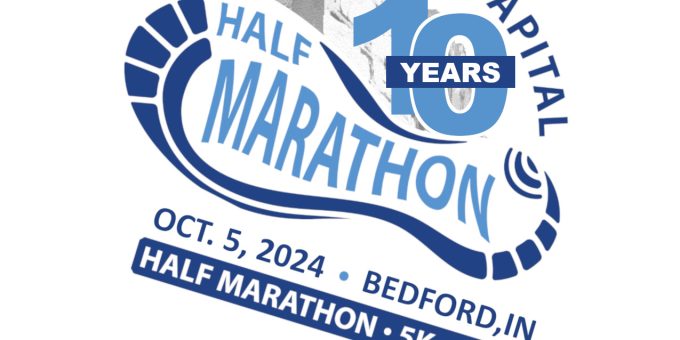
BEDFORD- The Limestone Capital Half Marathon, presented by McIntyre Bros, is a month away. If you are participating in the full 13.1-mile race, it’s time to start thinking about strategies to ensure peak performance. Being in your top physical condition on race day is something you have been working on for a while now, but have you thought of what really goes on in your body as the run grinds on?
Hydration is crucial during a half marathon to maintain energy, regulate body temperature, and prevent dehydration. As runners sweat, they lose water and electrolytes, leading to fatigue, cramps, and decreased performance. Drinking water or electrolyte solutions helps replenish lost fluids, keeps muscles functioning, and ensures overall well-being throughout the race.

How much should you drink?
Every athlete is different but, as a rule of thumb, very few runners can comfortably drink much more than 750ml (24oz) per hour – especially when running hard – so unless experience tells you otherwise, it’s unlikely you’ll need to drink more than that, especially if you got to the start line well hydrated.
What should you drink?
Personalizing your hydration strategy could really make a tangible difference to your result.
That’s because everyone loses a different amount of sodium in their sweat, and if you don’t get replacing that right, you risk hyponatremia.
Maintaining the sodium levels in your blood is crucial to performing at your best when you’re working hard. Sodium helps you absorb and retain fluid, which keeps your blood volume up, reduces cardiovascular strain and fatigue, and potentially helps you avoid cramping.
Just drinking water when sweating over long periods dilutes your sodium levels, which can really impact your performance and could lead to hyponatremia, which can have some nasty consequences, as highlighted in last year’s London Marathon, where one runner ended up in a coma with the condition.
Of course, this is an extreme and rare example, but it highlights how bad things can get if your hydration strategy is wrong.
How much sodium you lose is largely genetically determined and doesn’t change too much due to acclimation, diet, etc. So, a ‘one-size-fits-all’ approach to hydration doesn’t work.
Take the Fuel & Hydration Planner as a starting point for tailoring your hydration plan to your needs.






.png)











